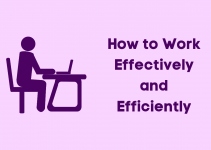
Whether you’re on your first hire or your thousandth, you should have a defined process in place for recruiting and onboarding. Over time, it will become more streamlined as you gain hiring experience and tweak your standard operating procedures accordingly. When you are just starting as an employer, many things will be on your mind. Things like: how will I make a sustainable income from my business, what do I need to launch forth, and how do I hire the right people to join my business?
Small business owners usually feel they cannot afford the time and resources needed to attract and hire the right talents. Hiring the right talent to join your business must not cost you a fortune. You can hire the right talent just with the resources that you have. How do you do that? Well, i have the answer to that in this article.
What are the crucial things i need to consider before hiring?
We have listed the top 10 tips that will ensure you hire the right candidate without spending time and money:
1. UNDERSTAND YOUR ORGANIZATIONAL NEED
Regardless of how good it feels to hire for a particular role because it sounds like the standard, you should consider your business needs. If your business doesn’t need the position immediately, then you can overlook the need to hire. One mistake you should not make is not understanding what your business needs. You go on to hire without understanding your organizational needs, you may hire a skilled person but the person may also not be able to contribute to the organization positively. This is because the person’s role does not contribute to the general success of the business.
2. EVALUATE WHICH POSITIONS YOU NEED TO FILL
Sonya Schwartz, founder of Her Norm, said this step is important to prevent redundancy of positions in the company. “You are looking for the best person to fill a specific need, not just getting someone in and calling it a day.
3. DEFINE THE JOB ROLE BEFORE ADVERTISING THE POSITION
One of the mistakes that many first-time employers make is not defining the position they will like to fill. It is one thing to discover the need for a position, but it is another thing to define your expectation for that position.
Why do you need to define your expectation for the position before advertising the job vacancy?
Having a clear understanding of the position allows you to define what success is for that position. Understanding what success is for a particular position will also help you identify the right talent for that position. as soon as you engage them during the interview.
Hiring the right candidates start with analyzing the job to get information about the duties, responsibilities, skills, and even the right environment for that position.
Analyzing a job may not be an easy thing to do for a first-time employer. You do not have to spend time with all the recruitment details involved in analyzing the position. You can use the service of a top-notch recruitment agency to take care of these details while you concentrate on other aspects of your business.
4. WRITE THE JOB DESCRIPTION
Before posting a job, confer with your team managers about the ideal candidate for the job to get a good idea of exactly what you need. It’s also good practice to make existing employees aware of the opening. Write a job description that matches what you are looking for, including details such as job requirements, responsibilities and expectations. Include information regarding your core values and company culture so you can find the right cultural fit.
5. CONSIDER THE CANDIDATE’S EXPERIENCE
Experience, key factor to consider before making a hiring decision. As a small business that is hiring for the first time, you should also be on the lookout for job candidates that have some form of experience in the role(s) that you want to fill.
If a candidate has shown success in a similar job, it shows that the candidate will be able to replicate the success at your company since they have a proven record of accomplishment.
If you have to choose between a candidate with experience and one without, it often makes sense to choose the one with experience. This should be the case since you may not have the budget or time to train new employees.
It is good you hire someone that will come in and start getting things moving immediately as a first-time employer.
6. ASK THE RIGHT INTERVIEW QUESTIONS
Just as candidate’s prepare for the interview by studying common job interview questions and answers, you also have to prepare for the interview as an employer. The job interview is an opportunity for you as an employer to know if a candidate is a right person.
Asking job candidates the right questions during the interview will help you find out the information you need to know to make a decision. The questions you ask job candidates will ultimately help you separate top-notch candidates from the not-so-good candidates.
Job candidates often practice the questions they want to ask the employer. It is also good you know the questions that job candidates ask to prepare yourself to give the right response.
7. SIFT THROUGH APPLICANTS
If you can’t find the right candidate for your job opening from the current applicant pool, you may need to revisit your job description.
8. CONDUCT A BACKGROUND CHECK
A final step you should consider is conducting a background check to ensure there are no significant red flags before bringing the person into your workplace.
Always do a background check on the job candidates to find out information like:
The candidate’s educational credentials.
The candidates’ skills.
The candidates’ work experience.
The candidates’ reference.
Doing a background check on the job candidates will also allow you to find out the candidates criminal history amongst other things. Before you do a background check on a job candidate, be sure to do the following:
Ask for the candidates’ consent.
Make sure your enquires are related to the job.
9. CONSIDER THE CANDIDATES POTENTIAL
We know that a candidate’s job experience is one of the key factors you consider when making a hiring decision. As much as it is important, you should also consider hiring job candidates with great potentials. Some job candidates may not have a long time of on-the-job experience but can grow into a great asset if given the opportunity.
When you are interviewing job candidates, you may encounter some candidates who seem promising but don’t quite have the needed experience. They may be fresh graduates with little or no work experience.
For example; you are looking to hire a sales/marketing executive. You may consider giving someone that just graduated with a good degree from a well-known/accredited university a chance. This candidate may not have the experience needed but will be able to learn fast and bring about innovative ideas.
10. CONSIDER CANDIDATE’S ATTITUDE
While candidate’s skills, experience, and educational qualifications are very important, the candidate’s attitude is also very crucial. You would not want to hire people that don’t have the right attitude to work. Hiring a skilled candidate that does not have the right attitude may even cost you more than what you may stand to gain from the candidate’s skills.
Since you are just starting with your organization, you would want to hire people that are excited about the opportunity to work with you and people that believe in the vision of your organization.
For example, an employee that is just working for the salary is generally not going to do better than someone that just wants to be a part of your organization. If a job candidate is eager to know the stage of the interview, and asking questions about the company. Then you can tell that the job candidate has a positive attitude.


